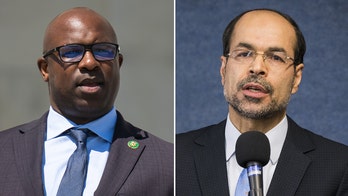The FCC is in many ways a typical federal agency that makes decisions impacting all of our lives but doesn't draw much public attention until it does something controversial.
Tuesday's unanimous decision to improve and expand 911 services to include text messaging and video streaming was buried by a contentious 3-2 ruling placing greater regulations on internet providers.
Chairman Julius Genachowski tried his best to downplay any disagreement over the commission's net neutrality order. "Today, for the first time, the FCC is adopting rules to preserve basic Internet values," he said. "Now, for the first time, we'll have enforceable, high-level rules of the road to preserve Internet freedom and openness."
It's tough to argue against freedom and openness but the FCC's take on what that means prompted its two dissenting members to argue the order is actually a constraint on internet access and anything but free.
"The contrasts between our perspectives could not be sharper," Commissioner Robert McDowell said before highlighting his four part objection to the plan. Commissioner Meredith Baker limited herself to only a seven-part critique because she needed to catch a flight.
There was loud criticism of the FCC's plan well before Tuesday's vote. Sen. Al Franken, D-Minn., took to the Senate floor over the weekend to say the FCC wasn't going far enough. After saying the commission was working "behind the scenes [and] away from public scrutiny" Franken argued the proposal was too soft on corporations who would be able to control the content and cost of what we see on the internet.
After Tuesday's vote, Verizon, one of the interests Franken fears will become too powerful because of the FCC's temerity, issued a statement saying the Commission had gone too far. "Based on today's announcement, the FCC appears to assert broad authority for sweeping new regulation of broadband wireline and wireless networks and the Internet itself. This assertion of authority without solid statutory underpinnings will yield continued uncertainty for industry, innovators, and investors. In the long run, that is harmful to consumers and the nation."
If the FCC really wants to get more (negative) attention it can pursue rules, recently advocated by Commissioner Michael Copps, enforcing a "public value test" for broadcasters who seek renewed licenses. Or act on the suggestion of Sen. Jay Rockefeller, D-W.V., who thinks cable news programs are incongruous with appropriate political discourse. "I'm tired of the right and the left," an exasperated Rockefeller said during a recent committee hearing. "There's a little bug inside of me which wants to get the FCC to say to Fox and to MSNBC, 'Out. Off. End. Goodbye.' "




